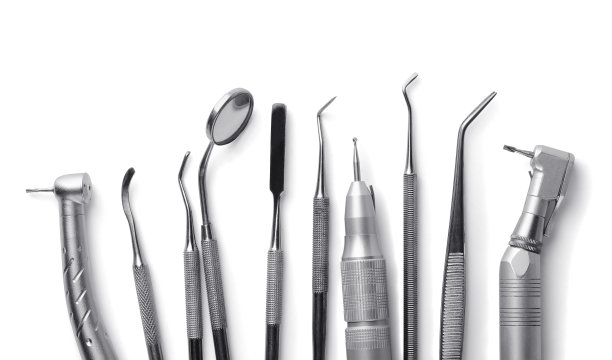Exploring the Benefits and Innovations of Dental Implant Treatment for Optimal Oral Health and Aesthetic Improvement
Summary: Dental implant treatment represents a remarkable advancement in modern dentistry, offering profound benefits for both oral health and aesthetic enhancement. This article delves into four key aspects of dental implants: their health benefits, lasting durability, innovative technologies, and aesthetic value. We will explore how dental implants can prevent bone loss and improve chewing function, as well as their resilience compared to traditional dentures and bridges. Additionally, we will discuss cutting-edge techniques that enhance patient comfort and outcomes, followed by their role in restoring smiles and self-esteem. Through this comprehensive exploration, readers will gain insight into why dental implants are becoming the preferred choice for replacing missing teeth.
1. Enhancing Oral Health with Implants

Dental implants significantly contribute to optimal oral health by maintaining the structure of the jawbone. When a tooth is lost, the underlying jawbone can begin to deteriorate, leading to further tooth loss and changes in facial structure. Implants mimic the roots of natural teeth, stimulating the bone and preventing resorption. This is crucial for maintaining the integrity of the facial skeleton.
Moreover, implants improve dental function. Unlike traditional dentures, which can shift during eating, implants are securely anchored in the jaw. This stability allows for improved chewing efficiency, enabling patients to enjoy a more varied diet without discomfort or anxiety about their prosthetic teeth. Enhanced chewing capabilities not only improve nutrition but also contribute to overall health.
Furthermore, dental implants aid in reducing the risk of gum disease. Poorly fitting dentures can irritate gum tissue, leading to inflammation and infection. Conversely, implants blend seamlessly with the surrounding gum tissue, promoting better oral hygiene and lessening the likelihood of periodontal disease.
2. Longevity and Durability of Dental Implants
One of the most notable advantages of dental implants is their remarkable durability. With proper care, implants can last a lifetime, making them a cost-effective solution in the long run. This longevity stems from the biocompatible materials used in manufacturing dental implants, which resist decay and require no special maintenance short of regular dental check-ups.
In comparison, traditional dental bridges and dentures frequently require replacement or adjustment every few years due to wear and fit issues. The durability of dental implants minimizes these inconveniences, allowing patients peace of mind and reducing long-term dental expenses associated with frequent replacements or repairs.
The resilience of dental implants also encompasses their ability to withstand normal biting forces without the risk of fractures or breakages. This durability makes them particularly appealing for individuals who lead active lifestyles or those concerned about aesthetics, as broken prosthetics can prompt significant emotional distress.
3. Innovations in Dental Implant Technology
Recent advancements in dental implant technology have revolutionized the treatment process, significantly enhancing patient experience and outcomes. For instance, digital imaging and 3D printing allow for precise implant placement, ensuring optimal positioning that mirrors the contour of natural teeth. This innovation can drastically reduce the chances of complications and the duration of the surgical procedure.
Additionally, the introduction of guided implant surgery has improved accuracy during implant placement. By using computer-assisted techniques, dentists can predetermine the best angle and depth for each implant, allowing for minimally invasive surgeries with quicker recovery times.
Moreover, the development of smart implants, which incorporate sensors to monitor healing and integration with jawbone, represents a cutting-edge advancement. These implants can provide real-time data to dentists, ensuring that any complications can be addressed promptly. Such innovations not only enhance implant success rates but also offer patients a streamlined and comfortable experience.
4. Aesthetic Improvement Through Dental Implants
Dental implants play a crucial role in aesthetic enhancement by restoring the natural appearance of a smile. The prosthetic teeth installed on implants are designed to match the color, shape, and size of surrounding natural teeth, yielding a seamless and attractive smile that boosts self-confidence.
Additionally, implants help preserve facial structure. By preventing bone loss, dental implants maintain the height of the jaw, which helps in retaining the natural contours of the face. This preservation of bone structure contributes to an overall youthful appearance, combating the sunken cheeks that commonly occur after tooth loss.
The psychological benefits of a restored smile cannot be overstated. Many individuals experience increased self-esteem and improved social interactions post-procedure. A natural-looking smile fosters a positive self-image and can transform personal and professional relationships, underscoring the significant impact that dental aesthetics has on overall well-being.
Summary:
The exploration of dental implants reveals their multifaceted benefits, encompassing improved oral health, outstanding longevity, cutting-edge technological advancements, and significant aesthetic enhancements. Patients can expect comprehensive improvements in their quality of life through the effectiveness and innovations of dental implant treatments.
This article is compiled by Vickong Dental and the content is for reference only.



